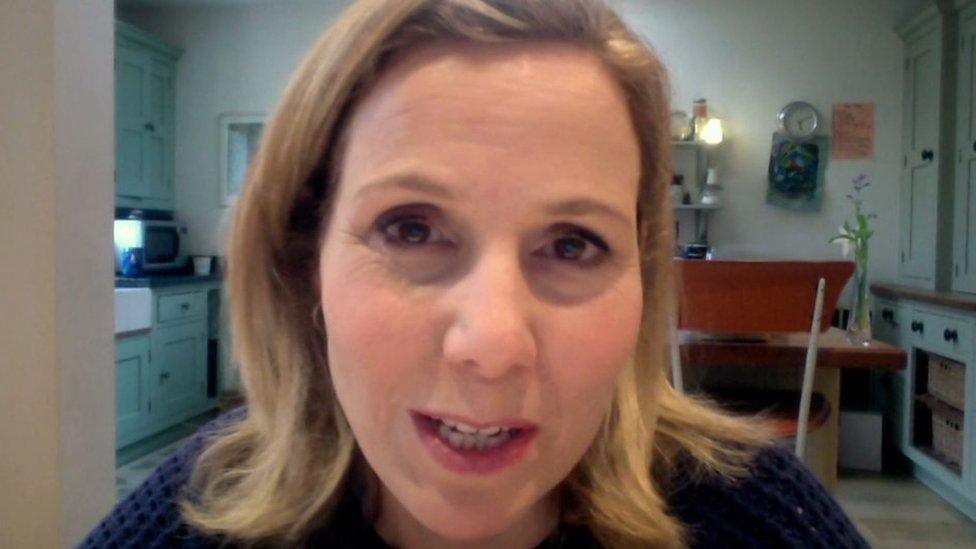New Wales Down's syndrome test 'to cut miscarriage risk'
- Published
- comments
Health Secretary Vaughan Gething says the test is safer for mothers and babies
Pregnant women in Wales are to become the first in the UK to receive a non-invasive test for Down's syndrome.
The NHS blood test, available from Monday, is said to be safer and more accurate than existing screenings for Down's, Edward's and Patau's syndromes.
It will be offered to women with a higher chance of identifying the syndromes in the first three months of pregnancy.
But some people have raised concerns it could lead to more terminations.
The Non-invasive Prenatal Testing (NIPT) test will be offered as an alternative to the invasive amniocentesis test currently available, which carries a small risk of miscarriage.
The Welsh Government said it was expected the introduction of the new test would reduce this risk, as fewer invasive tests would be needed.
The new test will not offer a complete diagnosis, as only the invasive test can confirm the syndrome, but aims to better inform women of the risks of having a child with the genetic disorder.
Women who are given a positive NIPT test would not be able to opt for a termination based on that result alone.
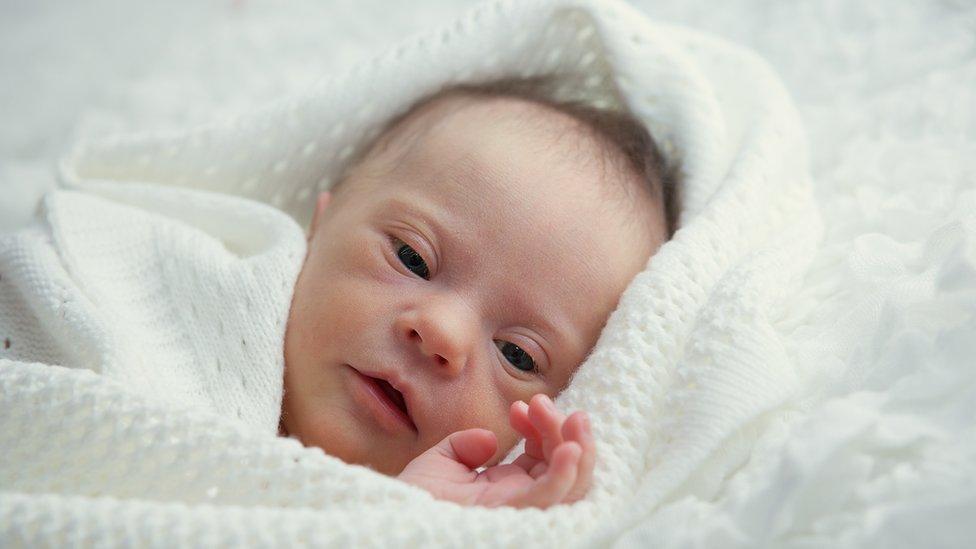
The introduction of the test will be evaluated in the next three years
Health Secretary Vaughan Gething said: "Our antenatal screening programme plays an important role in providing expectant mothers with the information and support they need throughout their pregnancy.
"I'm pleased Wales is leading the way by offering NIPT as part of our programme."
Helen Rogers, the Royal College of Midwives' director for Wales, welcomed the test.
She added: "Screening is always an individual choice for women and their partners and midwives in Wales have undergone additional training so they can share clear information on this non-invasive test with women which will support them in their decision making and to make the right choice for them."
Living with Down's syndrome "more colourful"
But some campaigners, including the movement Don't Screen Us Out, external, are concerned the test could lead to more terminations and negatively impact the Down's syndrome community.
Kate Harris, 41, from Barry, Vale of Glamorgan, whose 12-year-old son James has Down's syndrome said: "Currently, you would be told that there are all these different medical negatives [associated with Down's syndrome] that you could get and you would be advised to seek advice from professionals who ultimately do also advise in terms of termination.
"What we'd like to see is that whilst that body that advises still has a place, there is a very big gap that should be filled by people living the truth, that is living with a child with Down's syndrome, and although that can be varied as it can with any child, it's very different to actually experience, even if it is reading in black and white."
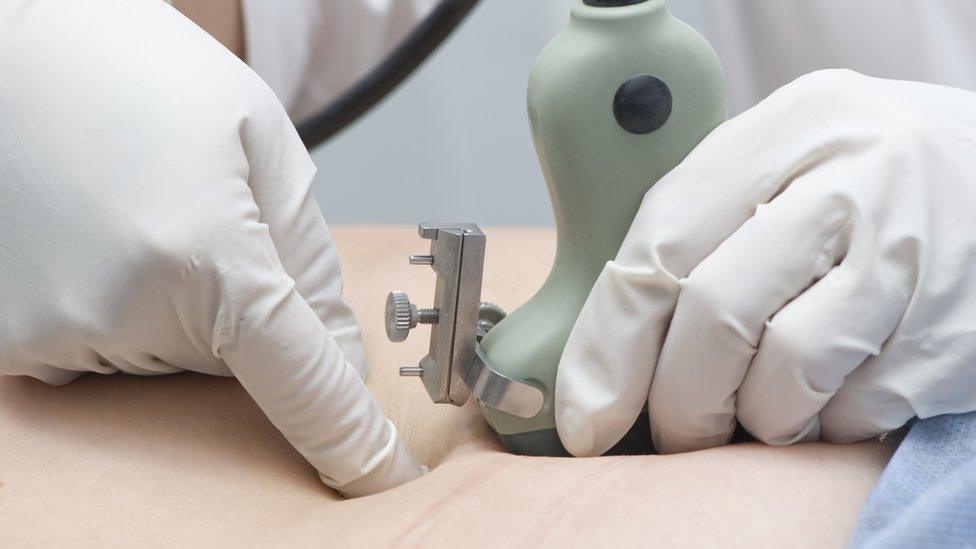
Amniocentesis - where a needle is used to extract amniotic fluid - carries a risk of miscarriage
The decision to implement the new test follows expert advice from the UK National Screening Committee.
Sharon Hillier, director of screening at Public Health Wales, added: "It is important that women are supported with information about the conditions and the screening offered so they can make the right decision for them as to whether they want to accept this offer."
The test will be rolled out in England from Autumn 2018, although details on what it will look like are yet to be decided by Public Health England.

What is NIPT?
One in every 200 women loses their baby after an amniocentesis, in which the fluid around the developing foetus is tested for genetic disorders
NIPT instead tests for fragments of foetal DNA, which reaches the mother's blood via the placenta
NIPT will only be offered to women who have already received a higher-chance result from a combined screening test, which is available on the NHS
The test is currently available privately in Wales

- Published27 April 2018
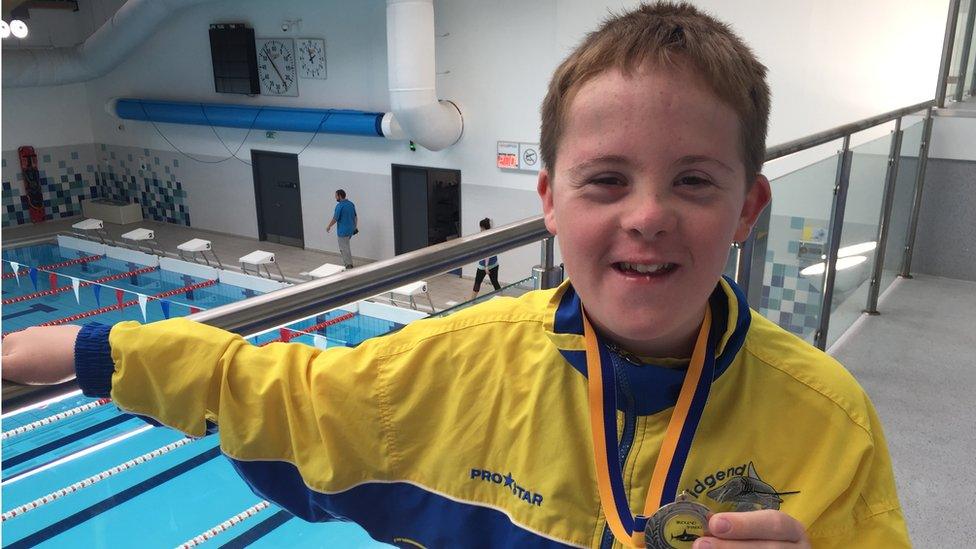
- Published21 August 2017

- Published31 October 2016
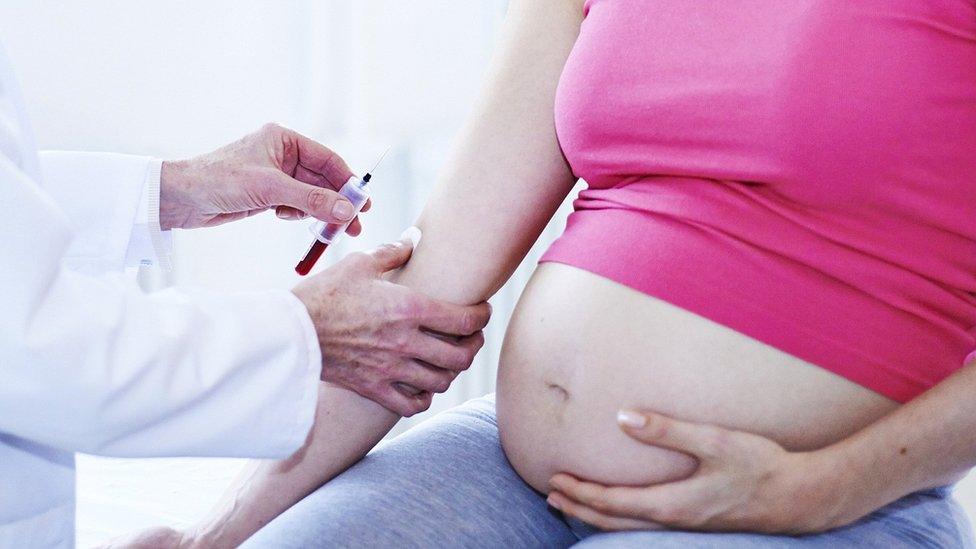
- Published30 July 2017

- Published29 September 2016
